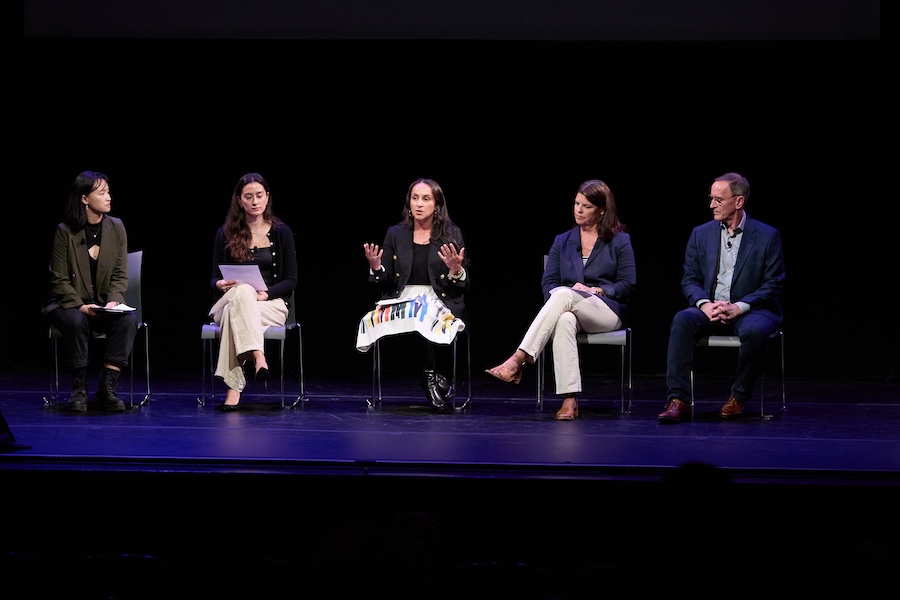Elevating Employee Experience Through Personalized Recognition and Rewards


A post-pandemic workplace survey found that only four in 10 employees feel respected at work. Researchers suggest that a drop in employee engagement and well-being caused major discontent across the workforce.
With positive engagement faltering across companies, leaders are working to implement programs and systems that encourage the recognition of employees through rewards, appreciation notes, and flexible benefits. During a panel discussion at From Day One’s San Francisco conference, leaders shared their methods on effectively recognizing valued employees and elevating their work experience.
Representing a Diverse Workforce
From Generation Z to Baby Boomers, companies are seeing an increasingly diverse demographic in the workplace and are challenged with adjusting to a wide range of needs.
Aon’s 2025 Employee Sentiment Survey found that while benefits such as medical, paid time off, dental and retirement benefits were valued by all employees, the level in which they prioritized them differed across generations.
Serafina Miller, senior vice president of Aon’s Northern California Health Solutions Practice, says that Gen Z will value paid time off and work life balance over retirement while Baby Boomers are more likely to focus on life and disability benefits and retirement.
Even companies that may have a tight budget are offering ways to reward their staff. In these situations, Miller says that offering flexibility and choice becomes critical. This can be provided through different types of health plans with high, medium and low coverage. In addition to still recognizing the needs of workers, this can drive financial wellness benefits as well, she says.
At Prezzee, U.S. Senior Marketing Manager Samara Swenson said the company is “constantly developing different programs that fit different needs that may fit different generations.” The company provides customizable digital gift cards, and its rewards programs allow employees to swap their gift cards for something they need. The company is also able to track what they are exchanging it for, such as groceries or other necessities to understand the budget constraints impacting its workers.

Allan Brown, vice president of total rewards at Snowflake, acknowledged that the pandemic also changed the power dynamic between employees and company leaders, where the culture of one workplace might appear better than another. For recruiters, he suggested that it could be effective to share with potential candidates that while a company will pay competitively, there is also an awareness for work life balance. “We’re looking for ways to sort of tap into what that person cares about, beyond money,” he said.
An Aon study has also found that “hybrid working arrangements actually allow employees to feel the most valued versus being forced to return to work,” Miller said. Remote working from the pandemic has allowed people to find that the ability to work home can be a stress reliever and a way to manage life better.
To See and Recognize Employees
Remote-capable workers forced back on-site reported the largest decline in feeling respected, dropping from 46% to 35% in 2022, according to Gallup.
After the pandemic, more employees began to feel overlooked or disrespected in the workforce amid layoffs, lack of recognition, decline in wellness services and restricted work flexibility.
Brown of Snowflake, says a stronger focus on manager training is necessary to address the needs of individual employee experiences. “Manager training and the responsibility of managers that they have to guide, mentor, coach and try to see the employee,” are important aspects to acknowledging staff, he said.
At Visa, employee recognition starts from day one, said Jennifer Cullen, global head of employee experience and listening. During its onboarding process, employees are introduced to all different systems used within the company as well as its peer-to-peer recognition program. With over 32,000 employees across the world, Visa ensures that “there’s not big differences in the way that folks are recognizing one another,” said Cullen.
Prezzee similarly works with companies to create a reward system that encourages employees to recognize their coworkers with points. When a certain amount of points are collected, they can cash it in for a gift card, says Swenson. “This is a small way to make your coworkers and everyone feel seen, make them feel rewarded, make them feel like the work that they’re doing at the workplace is valued,” she said.
Jennifer Yoshikoshi is a local news and education reporter based in the San Francisco Bay Area.
(Photos by David Coe for From Day One)
The From Day One Newsletter is a monthly roundup of articles, features, and editorials on innovative ways for companies to forge stronger relationships with their employees, customers, and communities.